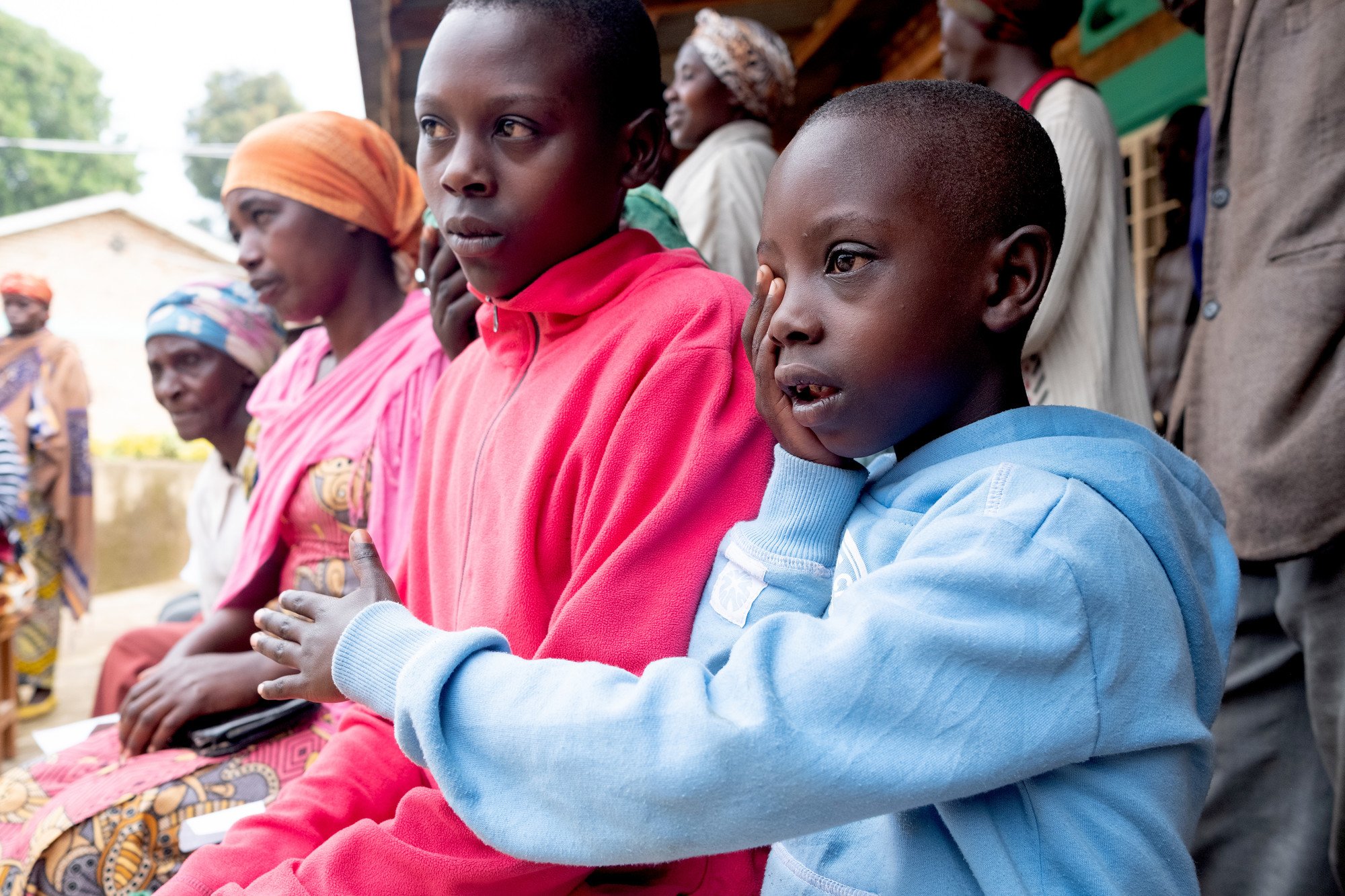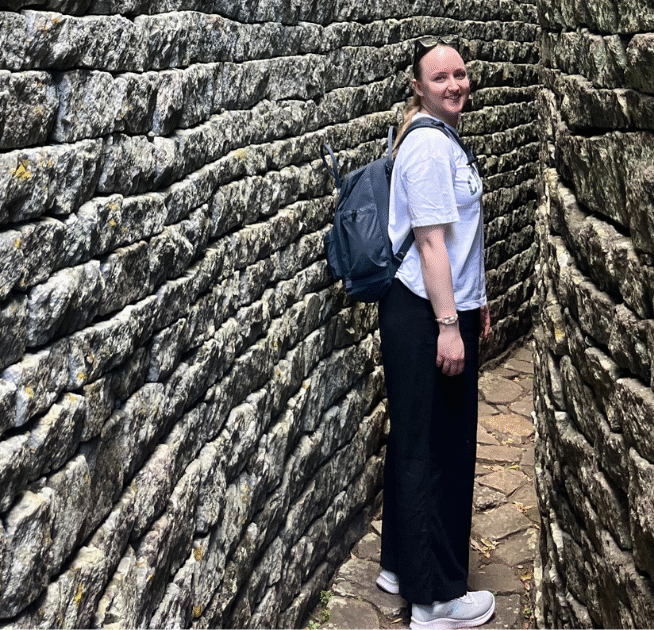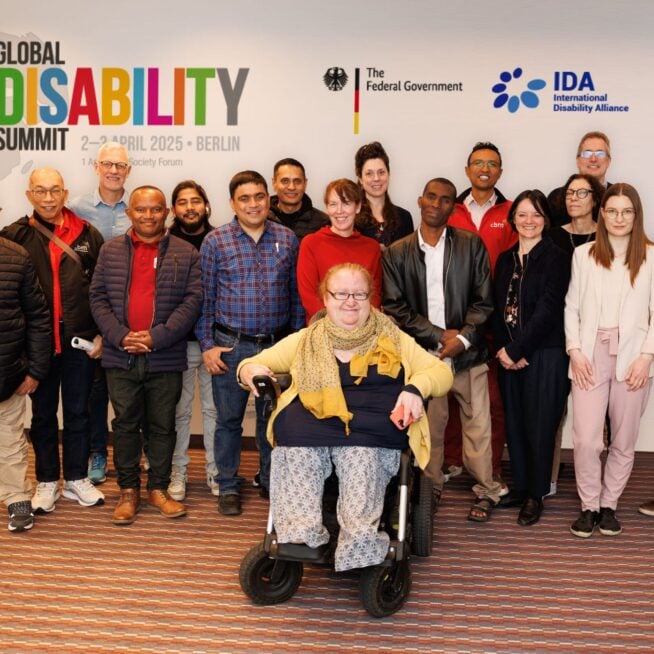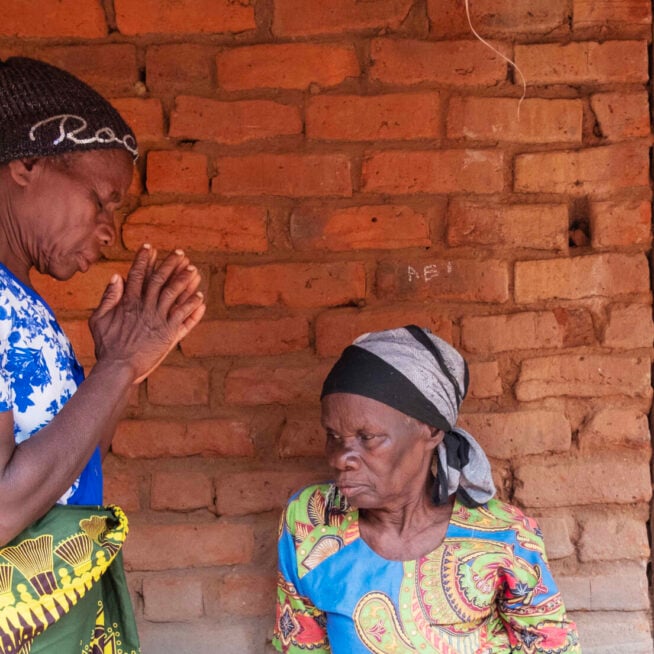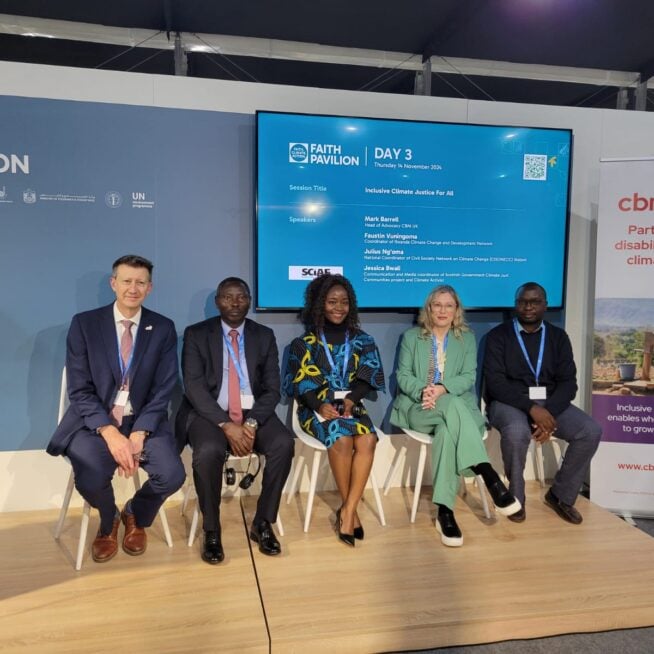Want to transform lives with us? Stay in touch and hear about our news, activities and appeals by email!
Taking eye health services to rural Rwanda – outreach stories
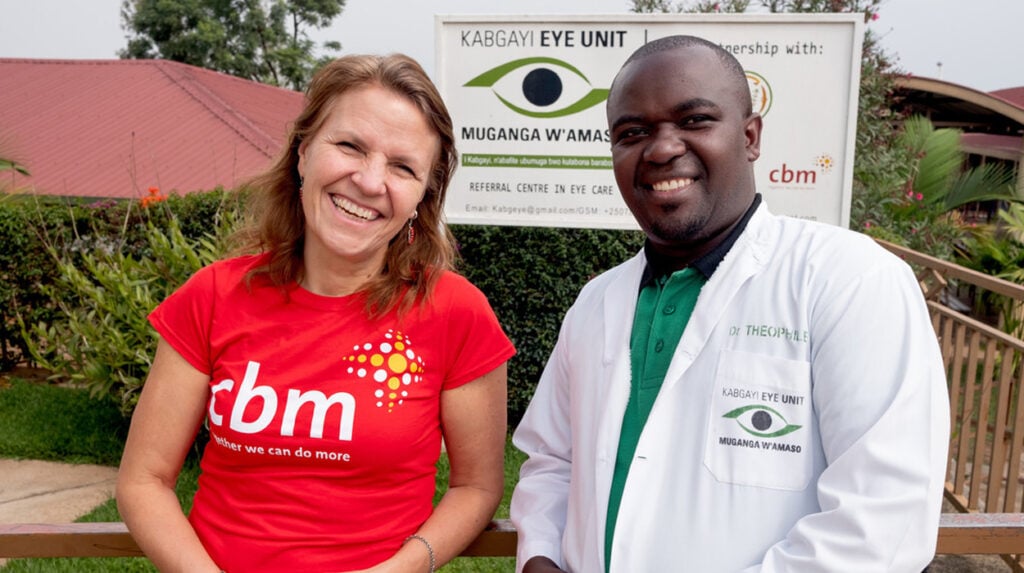
It is 5am as, bleary eyed, we set off for Kigeme in southern Rwanda to run a one-day eye-health clinic. I have spent the week meeting staff and patients at Kabgayi Eye Hospital, set up in 1993 by the Roman Catholic Diocese and CBM, and located about 60km from Rwanda’s capital Kigali. But we want to find out more about the situation for people with sight problems in more remote and rural areas, where most Rwandans live, so today we’re accompanying a team of three eye-health workers from Kabgayi for an outreach clinic.
Arriving at Kigeme Health Centre just before 8am, there is already a courtyard full of people waiting, sitting patiently on benches. More people are arriving, many walking slowly with sticks, feeling their way, or guided by family members. The team swiftly unload the vehicle, setting up a sight test chart in the first courtyard, examination equipment in an empty clinic room, medication dispensary in a third small room. And the clinic begins. In just a few hours, 70 patients will be examined, ranging from young children to grandparents. I’d like to introduce you just a couple of them.
Xavera and Angelique
14 year old Xavera has come with her 8 year old sister Angelique. Xavera is in charge today as their mother is sick and their father has a physical disability, which makes it difficult for him to walk here. Both girls have had painful, itchy eyes for some time. “It is difficult for me to follow all my schoolwork and sometimes when I am feeling much pain, I don’t go to school”, explains Xavera.
After an eye examination, the team diagnose both girls with allergic conjunctivitis. This is the most common condition seen in children here in Rwanda and it’s easily treatable, but it can cause permanent damage if it is not caught in time. It’s good news that the sisters will now have treatment to stop the pain and itching – they will leave today with eye drops. But I’m frustrated that this treatable problem has already caused Xavera to miss days of school, when this negative impact on her education could have been avoided. I have a daughter the same age so I’ve seen for myself how quickly children can fall behind and how hard it can be to catch up on what they’ve missed.
By improving access to eye health services in rural areas of Rwanda like this one, we can prevent children like Xavera and Angelique from suffering needlessly from easily treatable eye-health conditions, and from missing out on school.
Charles
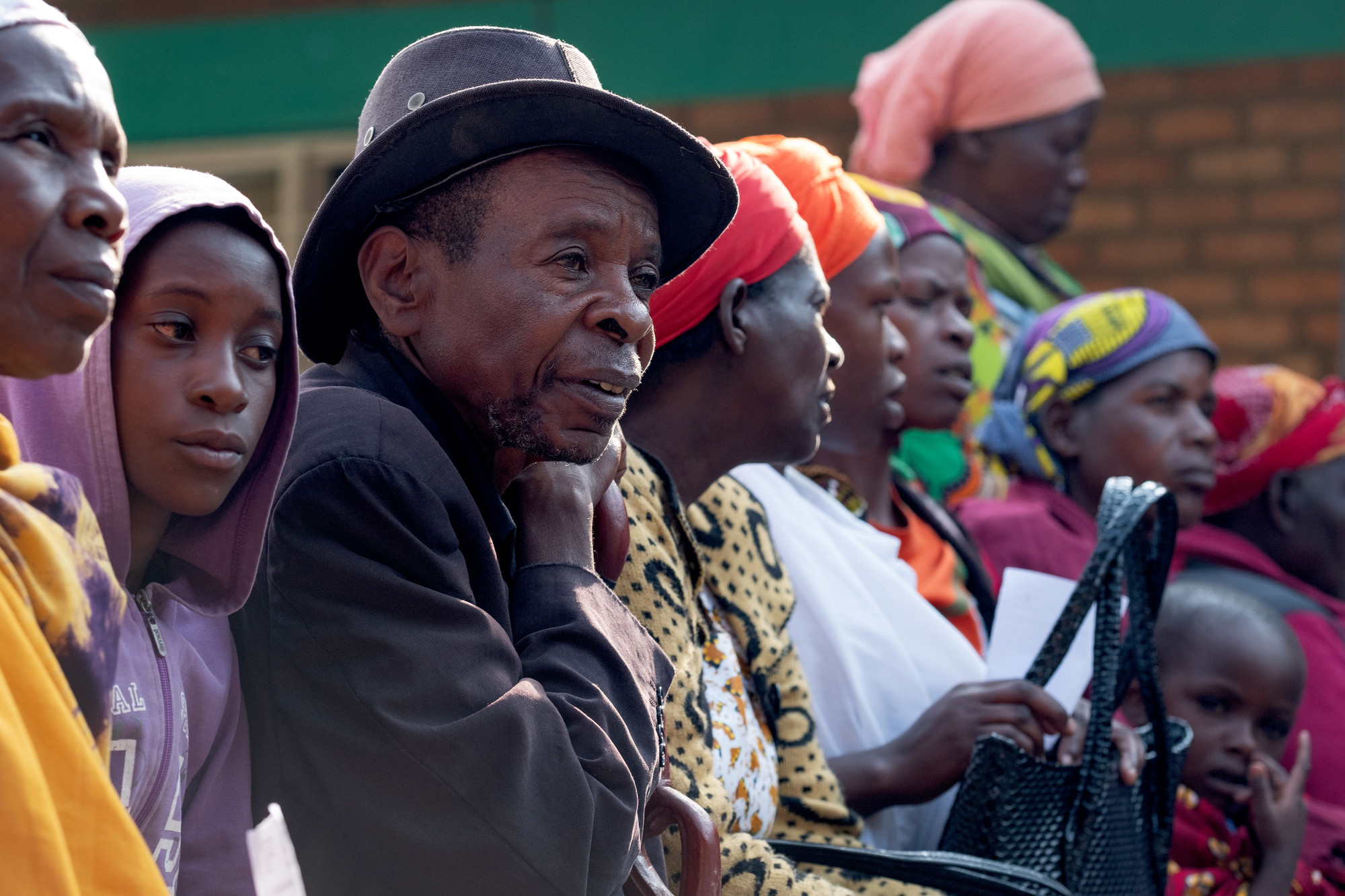
70 year-old Charles has walked for an hour and a half to be here, anxious to find a solution to his vision problems: “It’s hard to farm”, he explains. “It’s a shame for me as an old man who is capable of work but who cannot – I feel unhappy”.
When the team diagnoses Charles’ problem as cataracts, I feel relieved. The condition can be treated. But to my surprise, he weeps when he hears the news. To have the surgery to save his sight, he needs to travel to Kabgayi and he has no idea how he can afford the bus ticket for himself and a relative to help him find his way.
Rwanda is not a large country – a bit bigger than Wales, a little smaller than Belgium. But for most Rwandans, travelling across the country is a major undertaking. Journeys often start with a long walk, or for the less mobile a bumpy ride on the back of a hired bicycle. Then perhaps a motorbike taxi ride to a main highway. Then a bus and probably another walk at the other end.
But with few eye health services available in rural areas like this, at the moment people like Charles have to travel to specialist hospitals like Kabgayi for cataract surgery. That means a full day travelling each way plus the cost of the bus fare – and if you are visually impaired and can’t see the way for yourself, the cost of another ticket for someone to guide you. The price of those two bus fares could be as much as 10% of your monthly income. And that’s before you count the lost income from the time away, for yourself or the relative coming with you.
It’s shocking to think that Charles, and many others like him, could miss out on sight-restoring cataract surgery simply because they can’t afford a bus fare. We’re determined to change that – and you can help by supporting our See the Way appeal. Together, we can provide training, equipment and support to ensure that District Hospitals in Rwanda can deliver good quality cataract surgery closer to rural communities without the need for patients to travel across the country for the services they need.
Genesita
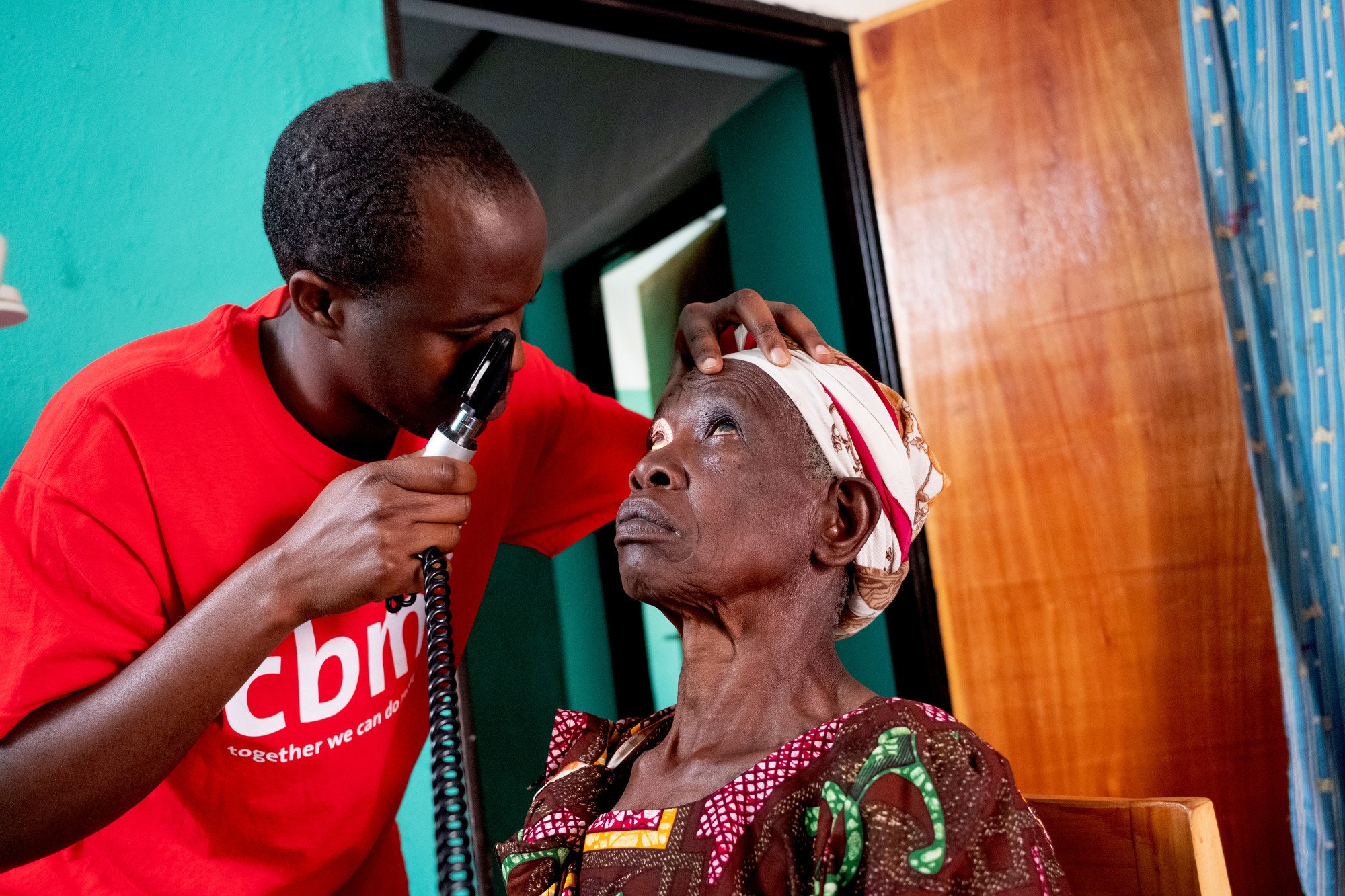
82 year-old Genesita arrives at the clinic led by her daughter Peruth. She can see nothing through her left eye and very little in her right. It means she can’t do a lot at home any more – she can prepare vegetables and cook a bit, but Peruth has to do everything else. And she can’t read any more: “Before she could read, now she can’t… she used to read her bible and her song book”, Peruth tells us.
The team establishes that Genesita’s sight problems are due to hypertension – high blood pressure. The sight in her left eye is gone forever. I feel not only deeply sad but angry hearing this: if she hadn’t had to wait to save the money for a bus fare to a specialist hospital, or for today’s outreach clinic, Genesita would not have lost so much of her vision in this way.
It is a relief that thanks to the clinic today she will now receive treatment for her blood pressure at the local District hospital, which should save the remaining sight in her right eye. And Kabgayi’s low vision team can provide devices like magnifiers, to help her make the most of the vision she has.
Helping people See the Way to a brighter future
In some ways, it has been an inspiring day, seeing the small and committed team from our partner hospital working tirelessly to examine and treat so many patients who would not otherwise have been seen. But it’s also been hugely challenging – what I’ve seen and heard here today has underlined the huge need to deliver eye health services nearer to where people live – otherwise the poorest will miss out, which can result in unnecessary pain, damage and even blindness.
But the good news is that we have a wonderful opportunity to make a difference in these coming weeks. Until 14 May this year, the UK government will double all donations to our See the Way appeal, helping deliver sight-saving surgery and other eye-health services to people who would otherwise miss out. So for every £1 you donate to the appeal, the UK government will provide an additional £1, which will train staff, equip hospitals and fund treatments that are accessible to rural Rwandans. Together, we can help people like Xavera, Angelique, Charles and Genesita to See the Way to a brighter future.
Find out more or donate at www.SeeTheWay.org
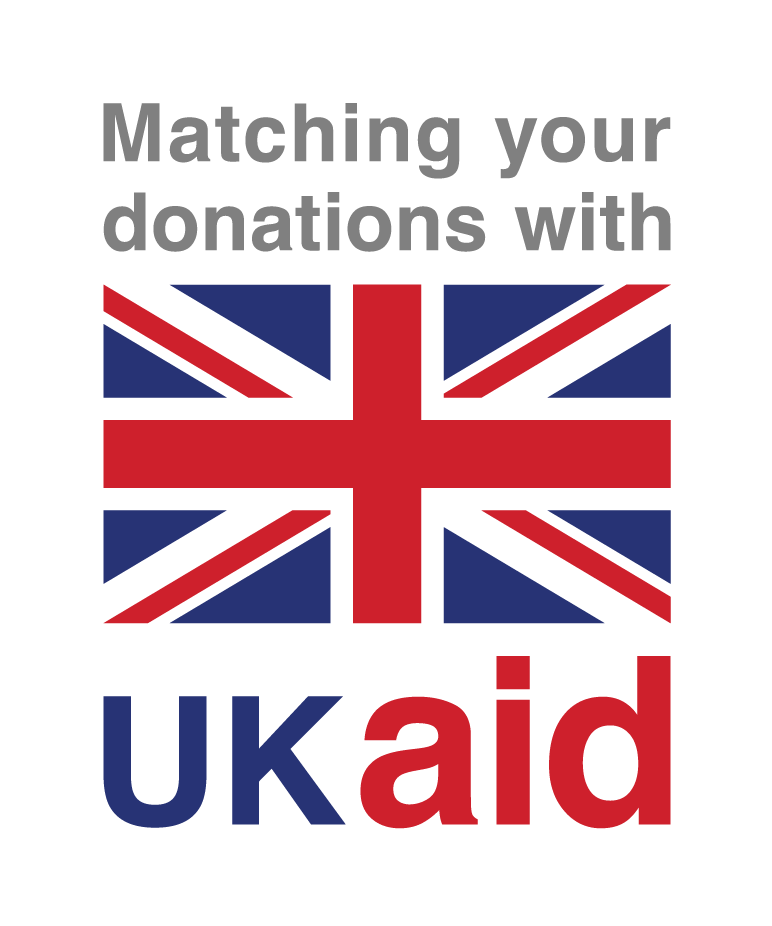 Every day, people in the world’s poorest places become needlessly blind because of conditions that can be easily treated. Your gift today will help people with sight problems See the Way to a brighter future. Until 14th May 2019, the UK government will double all public donations to our See the Way appeal up to £2 million. Public donations will support CBM’s work preventing blindness and transforming lives wherever the need is greatest. Match funding from the UK government will improve access to sight-saving eye-health services in Rwanda.
Every day, people in the world’s poorest places become needlessly blind because of conditions that can be easily treated. Your gift today will help people with sight problems See the Way to a brighter future. Until 14th May 2019, the UK government will double all public donations to our See the Way appeal up to £2 million. Public donations will support CBM’s work preventing blindness and transforming lives wherever the need is greatest. Match funding from the UK government will improve access to sight-saving eye-health services in Rwanda.
Image (top): CBM UK Chief Executive, Kirsty Smith, with Dr Theophile Tuyisabe at Kabgayi Hospital in Kabgayi, Rwanda.
